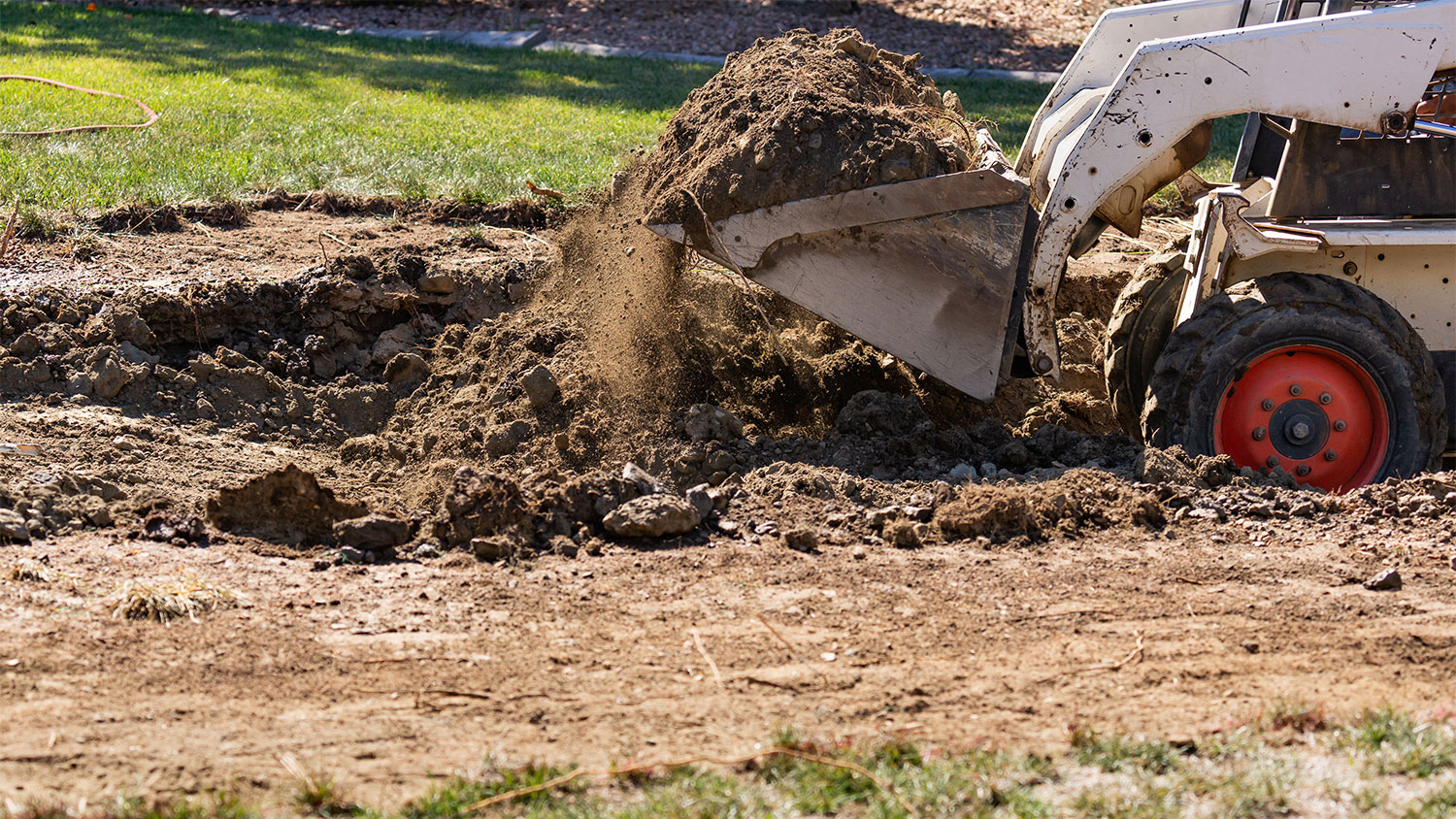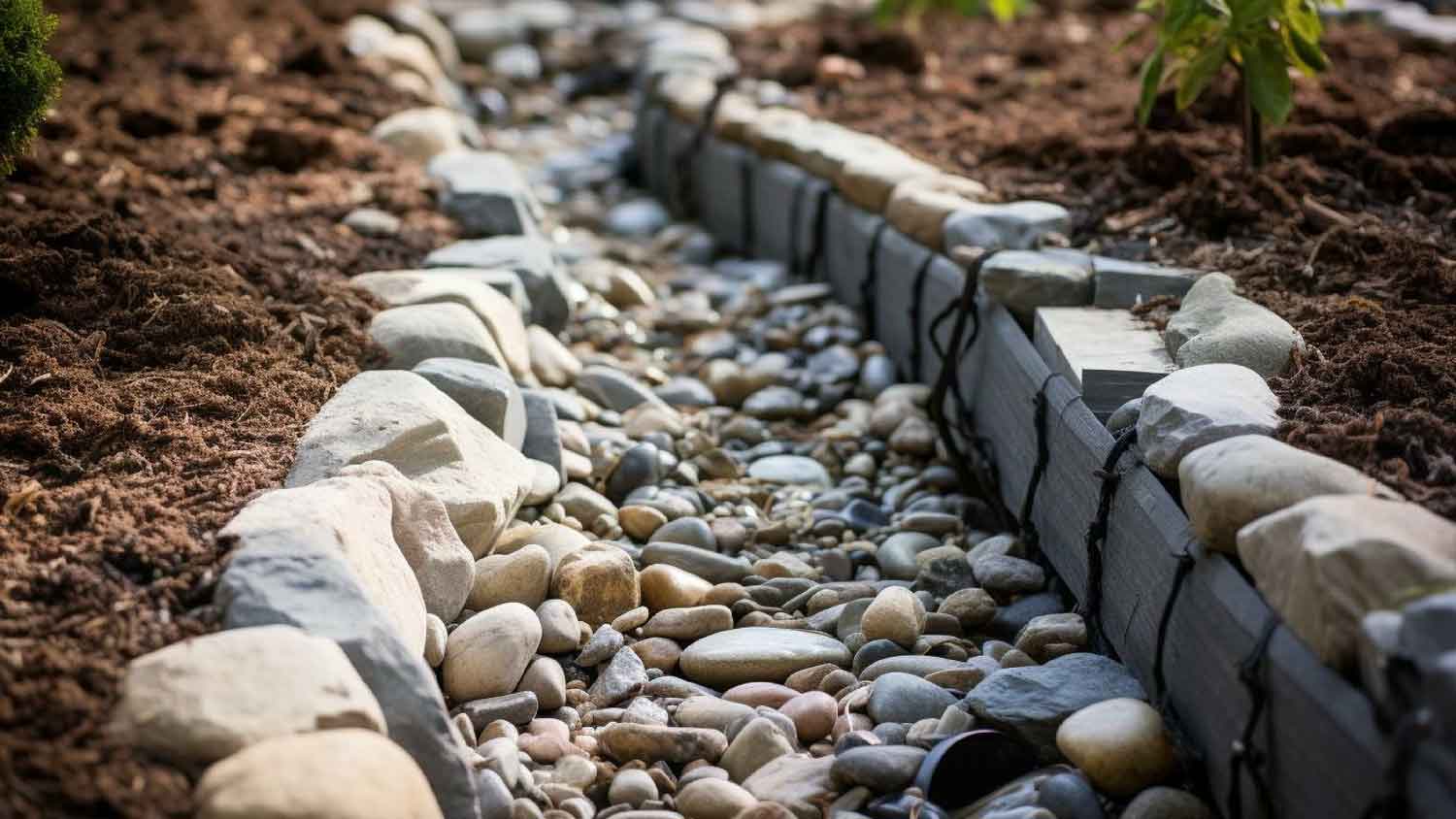
Discover how much trees cost to plant, exploring how factors like size, quantity, materials, and labor affect the total cost.
Landscape lighting costs an average of $4,000


The cost to install landscape lighting ranges from $1,000 to $7,500, with most homeowners paying an average of $4,000.
The top factors determining the total cost include the type of fixture you choose, the bulb type, and local labor rates.
Outdoor lighting enhances your home’s curb appeal while improving security.
Hiring a professional lighting contractor ensures the fixtures are installed safely and correctly.
This article was updated using automation technology and thoroughly reviewed for accuracy by HomeAdvisor Editor Ryan Noonan.
Most homeowners spend $4,000 to install landscape lighting. Basic lighting options start at $1,000 or approximately $100 to $200 per fixture. High-end installations with designer options, motion sensors, and solar-powered lights can cost up to $7,500. Key factors influencing the cost include the type and number of fixtures, the complexity of installation, and the existing landscaping. Outdoor lighting enhances your home's security and adds style to its exterior. Professional lighting contractors can help you choose the right lighting design while ensuring safe and efficient installation.
Several factors influence the cost of installing outdoor lighting, from retrofitting to trenching to the location of power sources.
Installing outdoor lighting in a mature landscape is more challenging and time-consuming, leading to higher labor costs. Lighting contractors must work around existing features like large bushes, rows of plants, mature trees, and hardscaping. Repairs may be necessary if any part of your landscape is disturbed during installation, adding to the total expense.
Running new underground wiring or trenching costs between $3 and $5 per linear foot. Prices vary depending on factors like soil conditions, the length of the run, and obstacles like tree roots or existing utilities.
Labor rates for installing outdoor lighting costs $50 to $100 per hour, depending on the electrician's experience and your location. Rates vary by region, with higher costs in urban areas and lower rates in rural locations.
Electricians or licensed lighting contractors handle tasks like designing the lighting layout, trenching and installing underground wiring, mounting fixtures, and ensuring the system meets local electrical codes.
There are many different landscape lighting features, each carrying different installation costs and labor requirements.
| Type of Fixture | Average Price Range (Installed) |
|---|---|
| Pathway lights | $50–$150 |
| Low-voltage landscape lighting | $100–$150 |
| Porch lights | $65–$250 |
| Floodlights | $250–$800 |
| Uplights | $100–$400 |
| Outdoor security light | $350–$500 |
| Lamp post | $400–$1,000 |
| Holiday lights | $220–$690 |
Pathway lights cost between $50 and $150 per fixture to install. Sometimes known as mushroom lights, these soft lights provide a gentle glow to help you find your way along a pathway after dark.
When professionally installed, low-voltage landscape lighting costs between $90 and $150 per fixture. These lights use less voltage than the standard household 120-volt supply. They require the installation of a 12-volt transformer, which reduces the load on your household's electricity supply and running costs.
Installing porch lights costs between $65 and $250 per fixture. Installation usually takes less than an hour, so most of this cost comes from the price of the fixture itself. These estimates don't include the cost of installing an exterior power source, which isn’t necessary if you opt for solar lights.
Installing a floodlight costs between $250 and $800. This price often includes pole installation, but the total costs will increase if you need to install a pole separately.
The cost to install uplights is between $100 and $400. Uplights go at the base of the home's walls, a retaining wall, a tree, or other landscape features. Uplighting can deter intruders but is more commonly used to enhance the appearance of your home or other property features.
It costs an average of $350 to $500 to install an outdoor security light. Outdoor motion sensor lights, or outdoor security lights, help to deter intruders by turning on a harsh, bright light when they detect motion within their field.
Lamp post costs range from $400 to $1,000. Because you place lamp posts a fair distance from your home—often close to the sidewalk—they cost more to install due to the additional wiring required.
Expect to pay an average cost of $220 to $660 for the cost to professionally install holiday lights outside. Hanging up holiday lights around your home perimeter can be a DIY job if you have several hours over the weekend. Still, larger companies offer packages that include light strands, installation, and takedown.
While the bulb type won't change the installation price, the cost to replace and run the bulbs will affect your total expenses. For example, metal halide bulbs cost three times more to run than LED bulbs of the same lumen output.
| Bulb Type | Average Price Range |
|---|---|
| LED | $0.70–$8 |
| CFL | $10–$40 |
| Halogen | $6–$15 |
| HID | $10–$35 |
| Incandescent | $0.50–$10 |
When installing outdoor lighting, it’s best to hire an outdoor lighting contractor near you. Electricians and lighting technicians have the tools and training to safely and securely install lighting on your property without risking faulty wiring or code violations. They can also design a system that enhances your landscape while ensuring proper voltage and energy efficiency. While a DIY job can help you save on labor fees, improper installation can lead to safety hazards, costly repairs, and higher long-term costs.
No place is more important than your home, which is why HomeAdvisor connects homeowners with local pros to transform their houses into homes they love. To help homeowners prepare for their next project, HomeAdvisor provides readers with accurate cost data and follows strict editorial guidelines. After a project is complete, we survey real customers about the costs to develop the pricing data you see, so you can make the best decisions for you and your home. We pair this data with research from reputable sources, including the U.S. Bureau of Labor Statistics, academic journals, market studies, and interviews with industry experts—all to ensure our prices reflect real-world projects.
From average costs to expert advice, get all the answers you need to get your job done.

Discover how much trees cost to plant, exploring how factors like size, quantity, materials, and labor affect the total cost.

Learn who to hire to regrade your yard. Compare grading contractors vs landscapers, see the process, timelines, and average costs to plan confidently.

Wondering who to hire to fill in an uneven lawn? See if a landscaper or general contractor fits your project and learn what to expect before you book.

Curious who to hire for mulching? Compare mulching companies, landscapers, and tree services, plus DIY vs. pro costs, to choose the right help today.

How much river rock will your next landscaping project need? Find out with our river rock calculator.

How much topsoil do you really need for your project? Dig into this topsoil calculator to find out.